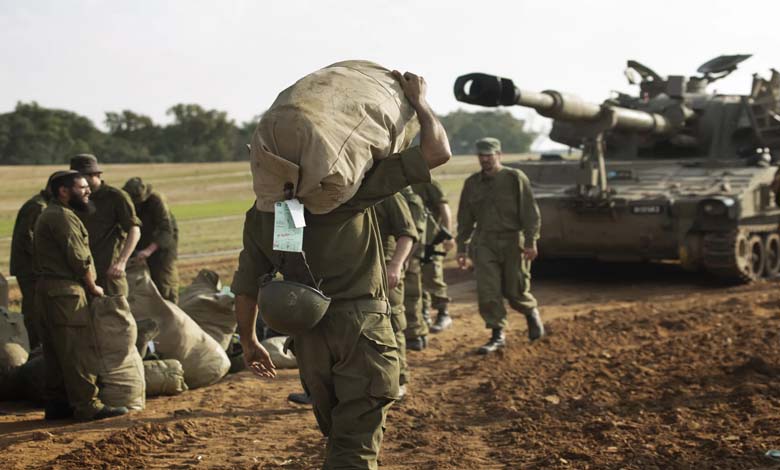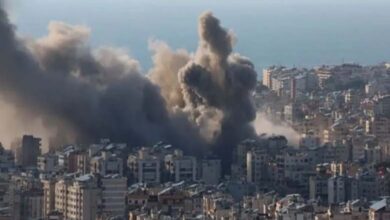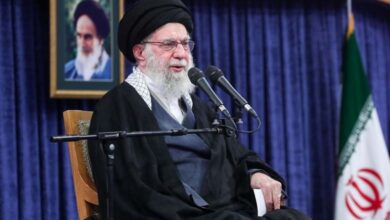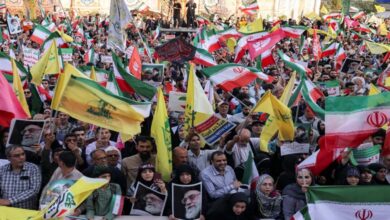War fatigue and internal pressure: Israel begins reducing its reserve forces

After two years of continuous fighting that has drained both its army and economy, Israel has begun reducing its military presence on the ground, signaling a shift in the balance of the conflict.
According to The Wall Street Journal, the Israeli army has started withdrawing reserve troops deployed in Gaza and other fronts, indicating a decline in combat intensity after two years of war, as the U.S.-brokered ceasefire continues to hold.
-
Israeli Army Faces Fierce Resistance in Gaza Outskirts
-
Israeli Army Preparing to Occupy Gaza City with a Quarter Million Soldiers
An Israeli military official told the paper that this reduction, including in northern Israel, is intended to ease the burden on exhausted reservists who have been repeatedly called up since Hamas’ October 7, 2023 attack.
The move comes as Israel and Hamas implement the first phase of a fragile ceasefire in Gaza, reducing the need for a large troop presence, even though both sides have repeatedly accused each other of violating the truce.
The next stage of the peace plan is expected to be more complicated, requiring Hamas’ disarmament and the deployment of an international stabilization force, the details of which are yet to be determined.
-
Israeli army approves guidelines for Gaza offensive
-
The Rafah Brigade Remains a Military Challenge for the Israeli Army in Gaza
A source familiar with the matter said that the Israeli army will withdraw thousands of reservists, with some being replaced by compulsory service soldiers.
Israel had mobilized over 300,000 reservists following the 2023 attack that killed about 1,200 people and ignited the war in Gaza.
The conflict has killed tens of thousands of Palestinians and left much of the Gaza Strip in ruins.
The initially high number of reserve call-ups has steadily decreased throughout the war.
-
Gunmen launch attacks on Israeli army in southern Syria
-
“Including Syria and Lebanon”: How the Israeli Army Prepares for “Operation Winter”
Exhausted soldiers and a strained economy
Israel’s standing army is relatively small, relying heavily on reservists in times of war.
Many reservists have expressed fatigue after continuous service across multiple fronts — from Lebanon to the West Bank — noting that their usual annual service period is only a few weeks.
The cost of maintaining these forces has also placed a heavy burden on Israel’s economy.
Edit Shafran Gitelman, a senior researcher at the Institute for National Security Studies in Tel Aviv, stated: “The reservists are simply collapsing, and the economy cannot sustain this anymore. The army is not waiting for the political leadership to declare the end of the war. It has no other option.”
According to the military official, reservists may be recalled at any time, depending on operational needs and developments.
-
Hamas Remaining in Power and Ceasefire Demand: Israeli Army’s Requests Anger Netanyahu
-
Israeli Army and Mossad Agree on Plans to Strike Iran
A changing battlefield
Before last month’s ceasefire in Gaza, the Israeli army struggled to convince weary reservists to return to duty, resorting to unusual recruitment methods such as social media posts and online chat groups.
Some soldiers said their family and professional lives were falling apart, while others expressed confusion about the purpose of continuing the war in Gaza.
Fighting nevertheless continues for Israel, particularly on the Lebanese front, where its forces carried out airstrikes on Thursday in response to what they described as Hezbollah’s attempts to rebuild its capabilities.
-
Biden Administration prepares to impose sanctions on Israeli Army Officers
-
A report reveals the scale of American aid to the Israeli army since the start of the war… Get to know it
Although a ceasefire between Israel and Lebanon was reached a year ago, the Israeli army continues to target what it calls Hezbollah sites inside Lebanese territory.
Gitelman argues that the troop reduction signals a transitional stage for Israel — no longer a full-scale war, but not yet a return to normalcy.
Earlier today, the Israeli newspaper Yedioth Ahronoth reported that Chief of Staff Eyal Zamir froze a plan to reduce troop numbers in and around West Bank settlements following warnings from the internal security service, Shin Bet.












